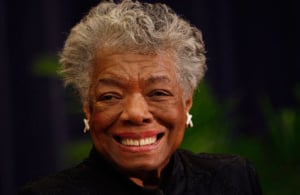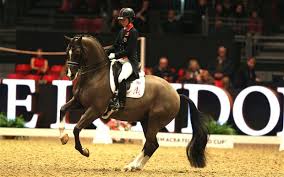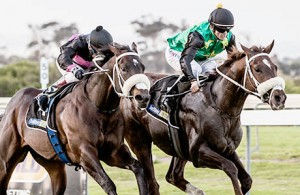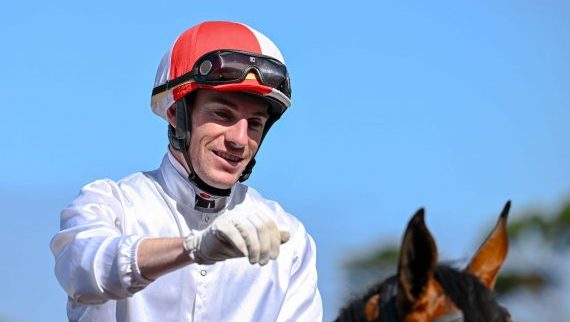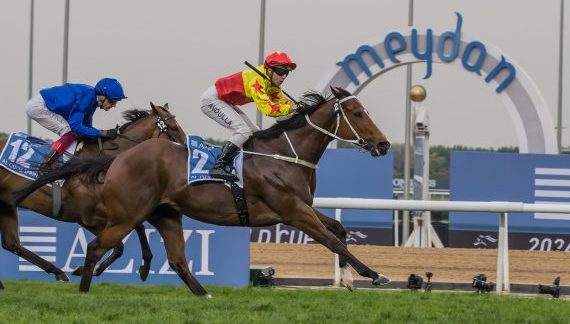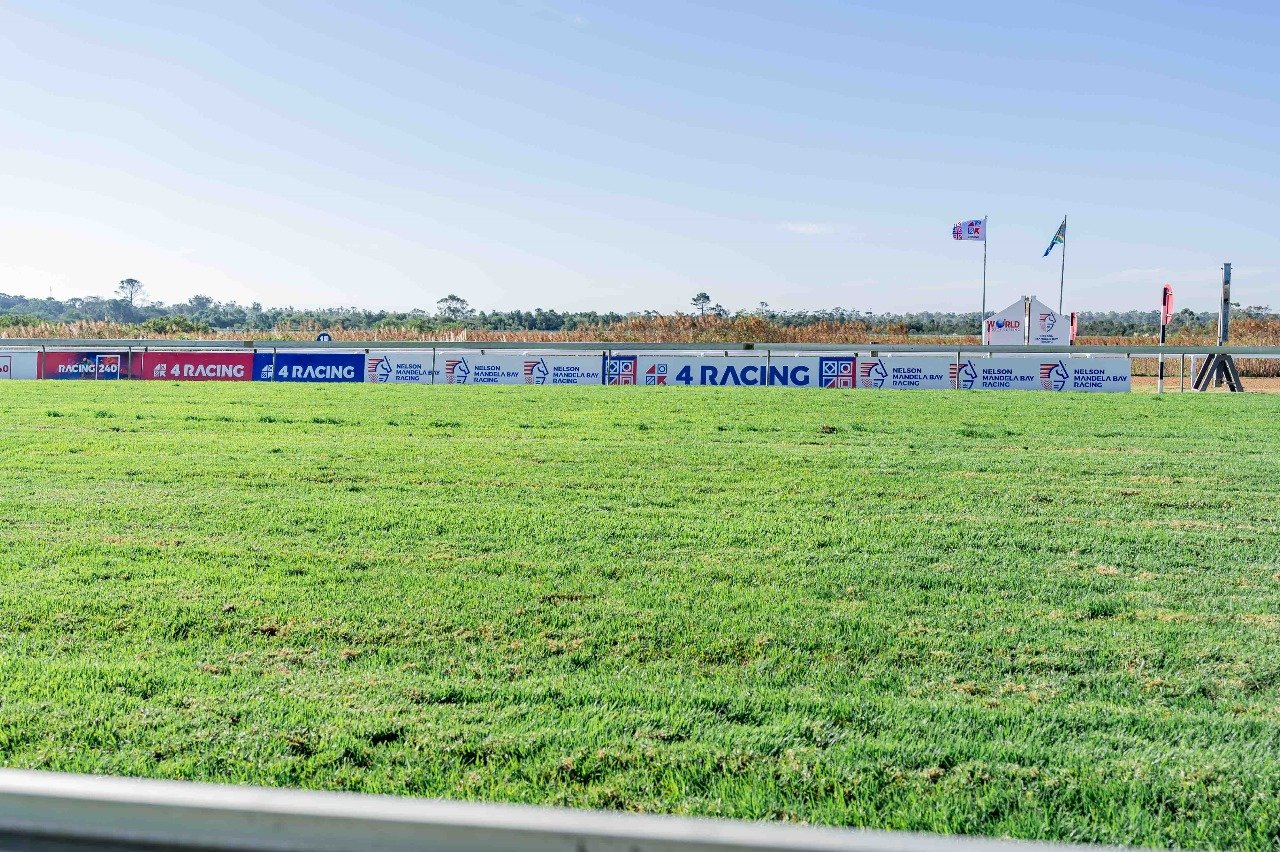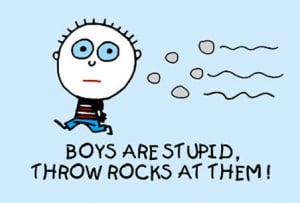 Another week, another racing scandal. I’m talking of course about the Melbourne Cup (although with two fatalities at Fairview last Friday, South Africa isn’t so far behind). The Aussie situation wasn’t entirely racing’s fault, but the second it happened we all drew our collective breath. Sure enough, the ‘bunny huggers’ stepped right up to the plate and as the old joke goes ‘that’s where the fight started’. Or rather, continued.
Another week, another racing scandal. I’m talking of course about the Melbourne Cup (although with two fatalities at Fairview last Friday, South Africa isn’t so far behind). The Aussie situation wasn’t entirely racing’s fault, but the second it happened we all drew our collective breath. Sure enough, the ‘bunny huggers’ stepped right up to the plate and as the old joke goes ‘that’s where the fight started’. Or rather, continued.
This is the fourth major drama this year and it’s becoming a little like those silly posters ‘Boys are stupid, throw rocks at them’ except in this case you can substitute ‘boys’ with either ‘racing’ or ‘bunny huggers’ depending on which side of the argument you choose. I’m starting to think ‘people’ works best, because despite both parties claiming to have horses’ best interests at heart, we seem more interested in fighting each other, than fighting for the horse.
My position on the fence
Maya Angelou said I’ve learned that you can tell a lot about a person by the way they handle a rainy day, lost luggage, and tangled Christmas tree lights. It’s a shame she never commented on racing – I’d be interested to hear her thoughts. I consider myself a racing person, both through my family as well as personally – my dad bred, raised, raced and rode racehorses and I have too. Perhaps not to the same extent, but I do believe that it helps to have first-hand experience of something in order to comment intelligently on it and so I have been through the cycle too, because I think it’s important. I also think it’s fun when things go well and when things don’t, well, you learn a lot – about the business, but also about yourself. Do I like racing? In truth, yes and no. I like some aspects of it and there are aspects that I dislike. As most of you know, I don’t mind saying that.
Here’s the thing though, I also consider myself a bunny-hugger. Well, if caring about horses and putting their welfare first is being a bunny-hugger. I acknowledge that this presents conflicts in the racing environment, but I don’t think the two are mutually exclusive. I am schooling my OTTHB’s to be competition horses. I also have non-Thoroughbreds for the same purpose. I don’t waste too much time trying to decide whether one is better than the other. I just like horses and any excuse to be around them – whether that’s racing or competing or pretty much any other discipline really. Do I enjoy the competitive world? As with racing, I like some aspects and others less so, but I think it’s important to constantly acknowledge and evaluate both – otherwise how do we ever improve things?
I’m a dressage queen and I’m ok
Dressage is generally considered as far opposite to racing as one can get. I happen to be a dressage enthusiast (let’s not get too technical about my levels of proficiency!) as well as supporting racing. Why? Because they’re both based on the pursuit of excellence. I’m not unique. Heather Simpson and her sister Laura Kotze are both involved in breeding and racing, Terrance Millard and Chris Snaith both came from show-jumping backgrounds before they got involved in racing as, interestingly did Michael Matz over in the USA, who is a Show-Jumping Hall of Famer as well as a Kentucky Derby and Belmont Stakes winning trainer. So it seems if we put sport in the centre of what we do, then we all manage to get along fine.
What is sport?
Competitive sport at its highest level, irrespective of the discipline, is about conditioning an athlete to perform a specific task to the maximum of its physical capability. We are looking for the best, the fastest, the strongest. That principle is universal as are the associated risks – not all can, will or even should excel. The ones who are not as good, or fast, or strong, will fall by the wayside. That’s what the system is designed to do.
Yes, there is wastage and it is becoming increasingly obvious that the way we deal with our waste does need to be addressed. Perhaps, as in other sport, we should be pointing fingers at our authorities, not blaming participants who are merely working within the parameters set out for them.
Sport or business?
Barry Irwin wrote the most wonderful treatise on whether racing is a sport or a business in which he said “When all is said and done …. what it all boils down to is this: two horses, locked in battle, being ridden for all they are worth, and each animal giving his last ounce of courage to reach the finish line first, sparing nothing in the bargain.”
“It is this full cry of valour that viscerally impacts even the hardest-hearted of professional gamblers and gains those horseplayers’ full and complete admiration. That is the essence of racing. That is the essence of sport. And without this at its very core, there is nothing worth betting on. And these gamblers know and respect it. That is why they bet on racing, because sport trumps all.”
Or as Grantland Rice wrote “When the One Great Scorer comes to mark against your name, He writes – not that you won or lost – but HOW you played the Game”. Hmm, tell that to the handicapper! Or the stakes committee.
Our own fault?
One of the most thought-provoking comments I read on the myriad chat forums and Facebook discussions was from Victoria Doyle who said ‘horse racing is an easy target – only because they let themselves be’. Is she correct, and if so, why?
The problem seems to come in when the worlds of sport and business collide and the main issue is that racing is also a business. Competitive sports may be catching up in this regard and good horses are certainly being sold for very large sums of money, but somehow this is acceptable because the emphasis is on SPORT. Also, every aspect of the breed and the chosen discipline is written about and scrutinised to the nth degree and there is the constant drive to improve – whether it’s new rules, new training methods, new surfaces or new equipment – there is a drive to make things better. Competitors at the top levels are under constant scrutiny and criticism and it is accepted as part of the job in the same way that footballers are heroes one minute and zeros the next.
Racing is quite bald-faced about the fact that we race for money and given the way we advertise betting revenue ‘uber alles’, well, it’s hardly a stretch to see why the perception of the industry is what it is. Champion horses and jockeys are not measured by number of wins, they’re measured by earnings. We reward money, not endeavour and I think therein lies the rub. It’s a question of motive. Plus when there is criticism, well, we’re not very good at dealing with it, are we and the standard MO is to say nothing and hope it goes away.
Money can be good
I get that some people feel that racing ‘breaks’ horses (so does dressage), the point is that neither sets out to do so deliberately, because as we all know, broken horses cost money – usually lots of it. And the ‘R’ sign is universal whether you’re a sport or a business enthusiast. But from that point of view, the fact that racing is about money shouldn’t be a bad thing. If racing is all about money and racing folk are the money-hungry ogres the welfare folks would like to make out, then surely this is a good thing as money incentivises us to take the BEST possible care of our horses, not the least as the welfare folks claim.
Where racing is less good is transparency and accountability. They say you can’t manage what you can’t measure. Racing does measure some things, but it’s also interesting what we don’t measure. We gloss over incidents of breakdowns and injuries. I’m not sure why – ignoring the information doesn’t make it go away and is a sure fire way of guaranteeing that mistakes get repeated. Plus it makes people suspect that we’re trying to hide things. And round it goes. Surely acknowledging how many mistakes we ARE making will also highlight how many we AREN’T ?
Information is key
The trouble with racing is that we have relatively little science to support what we do – hence the number of (strong) arguments both for and against, well, just about everything. Yes, there are success stories on either side of every argument, but whether it’s tracks, training methods, optimum bloodlines or age to start a horse, there’s little definitive proof either way as yet. So for the time being, it seems, we agree to disagree and in the meantime, whoever is the most skilled and the most experienced, gets the best results across the board. The rest of us learn as fast as we can – usually by trial and error because our successes and failures aren’t given quite the same amount of airtime – see above. One has to learn fast because the incentives (money) are quite high and the penalties (also money) are equally so. Some may even argue that having monetary incentives are a good way to make people want to get the best out of their horses. But again, some see it as a negative. I guess it’s all a question of perspective.
What’s the answer?
Where you have horses, you have horse people. And where you have horse people, you have good horse people and not-so-good horse people. The trick is trying to find the first kind and avoid the second. Your chances generally improve with luck and a little experience.
The point is, this shouldn’t be an ‘us’ and ‘them’ conversation – at least not with the line drawn on the divide of who is a racing enthusiast and who isn’t. This is, at heart, about the horse.
The Aussie welfare folks are calling for the banning of racing. Horses, and specifically Thoroughbreds, are purpose bred. If you take away the purpose for which they are bred – in this case racing – then those horses no longer have any purpose. And while I see the animal rights campaigners being very vocal about shutting racing down, they have somewhat less to say about where all the surplus horses should go if they ever get their way. Presumably if there should be no racing, then there should be no Thoroughbreds either. But if we’re going to start banning things because they MIGHT be handled irresponsibly, well, then we’ve got to start talking about banning cigarettes, alcohol, guns, and probably religion and several other things while we’re at it. In short, it’s simply not practical. We don’t live in a nanny state and I for one, don’t particularly want to.
Racing is a sport. It’s also a business. And as long as that dichotomy exists – and it seems it always has and always will – we’re always going to have this debate.
It would be nice if the debate could be used constructively, but if you still feel boys (or racing, or bunny huggers) are stupid, then you can always still throw rocks at them.


